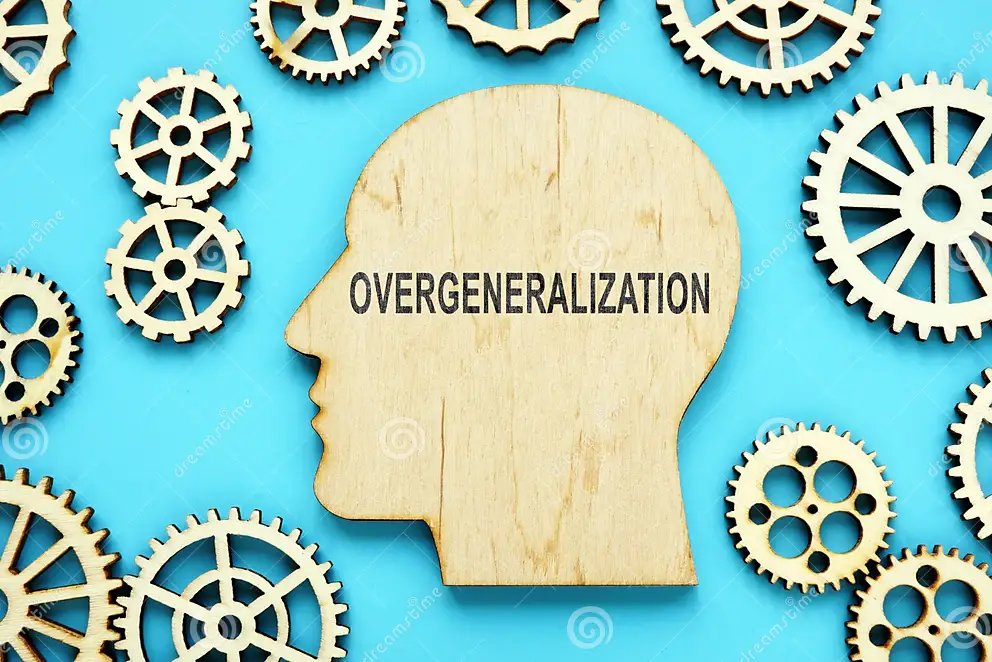The Adverse Effects of Overgeneralization
Overgeneralization has detrimental effects on interpersonal interactions, cultural attitudes, and even governmental decisions in addition to personal perceptions.
Oversimplification of complicated subjects and the reinforcement of stereotypes can result in overgeneralization, which can impede personal development, encourage prejudice, and exacerbate social injustice.
Obstacle to Individual Development
Overgeneralization hinders our capacity to look past preconceptions and presumptions, which serves as a hindrance to personal development. The complexity and diversity of individual viewpoints are lost when we make generalizations based on scant experiences.
This narrow-mindedness can keep us from growing as people because it keeps us stuck in unrealistic assumptions about other people and ourselves.
Encouraging Discrimination and Prejudice
Overgeneralization encourages oversimplified and frequently false perceptions of large groups of individuals, which feeds prejudice and discrimination.
When we group people together based on fragile factors like nationality, gender, or color, we reinforce negative stereotypes and biases. Because people are judged based on stereotypes rather than their particular merits, this can result in societal injustice, inequality, and unfair treatment of others.
Growing Inefficiency in Making Decisions
Overgeneralization affects our ability to make wise decisions by distorting our impressions of reality and impairing our judgment. We are more prone to make poor assumptions and poor decisions when we depend on broad generalizations rather than nuanced understanding. When we make decisions based on flawed logic rather than factual appraisal, it can have negative impacts on both personal and professional aspects of life.
A decline in mental health
Because it encourages negative feelings like fear, wrath,
and resentment, overgeneralization has a detrimental effect on mental health. Feelings of alienation and loneliness result when we oversimplify individuals or circumstances and ignore the richness and nuances of the human experience. Because we find it difficult to reconcile our warped perceptions with the reality of the world around us, this can increase stress, worry, and despair.
To sum up, creating too many generalizations can be harmful to both people and society as a whole. It may affect personal development, reinforce discrimination, impair judgment, and worsen mental health. To promote empathy, comprehension, and inclusivity in our relationships with others, it is critical to identify and confront oversimplification.






